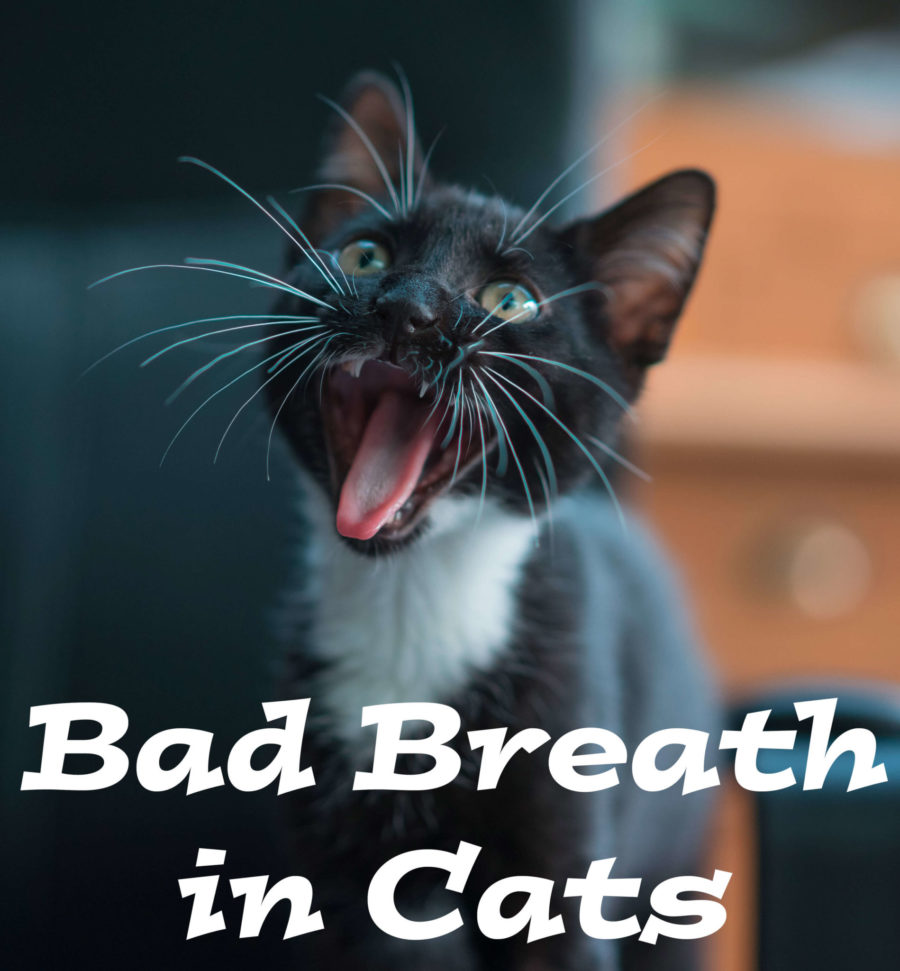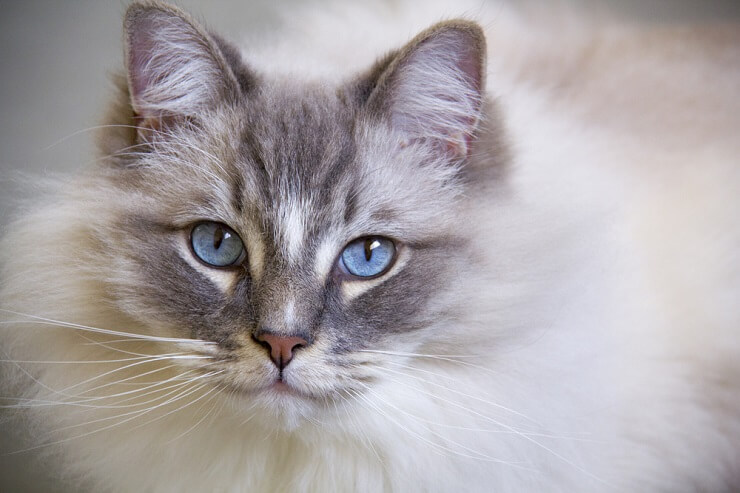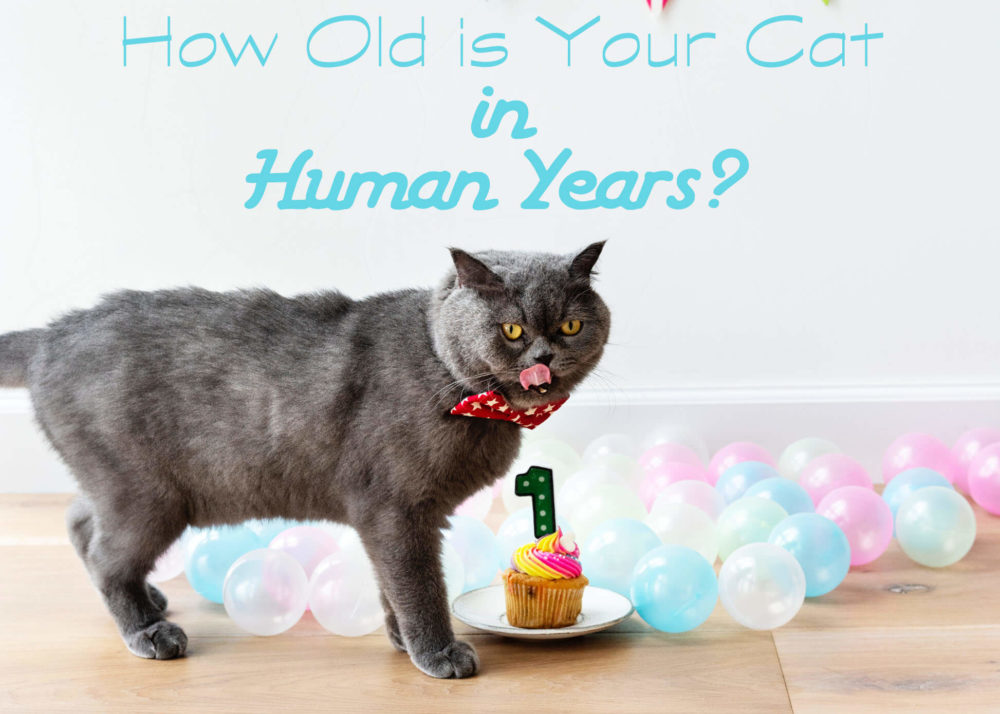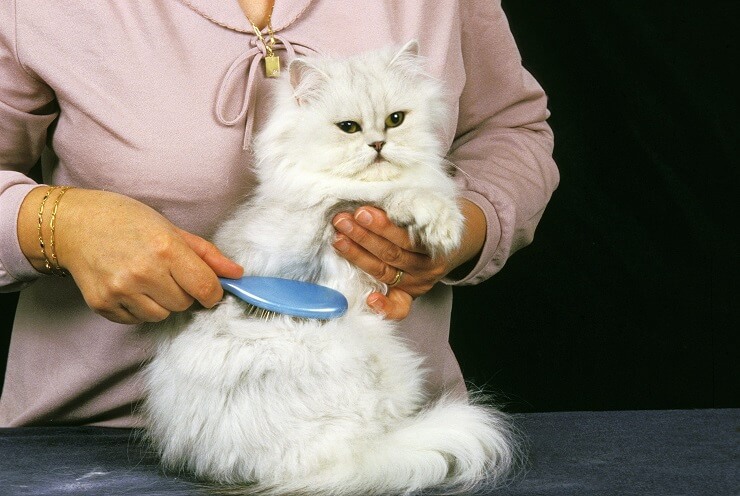Bad Breath In Cats : Causes, Treatment And Prevention
This page contains affiliate links. We may earn money or products from the companies mentioned in this post through our independently chosen links, which earn us a commission. Learn More
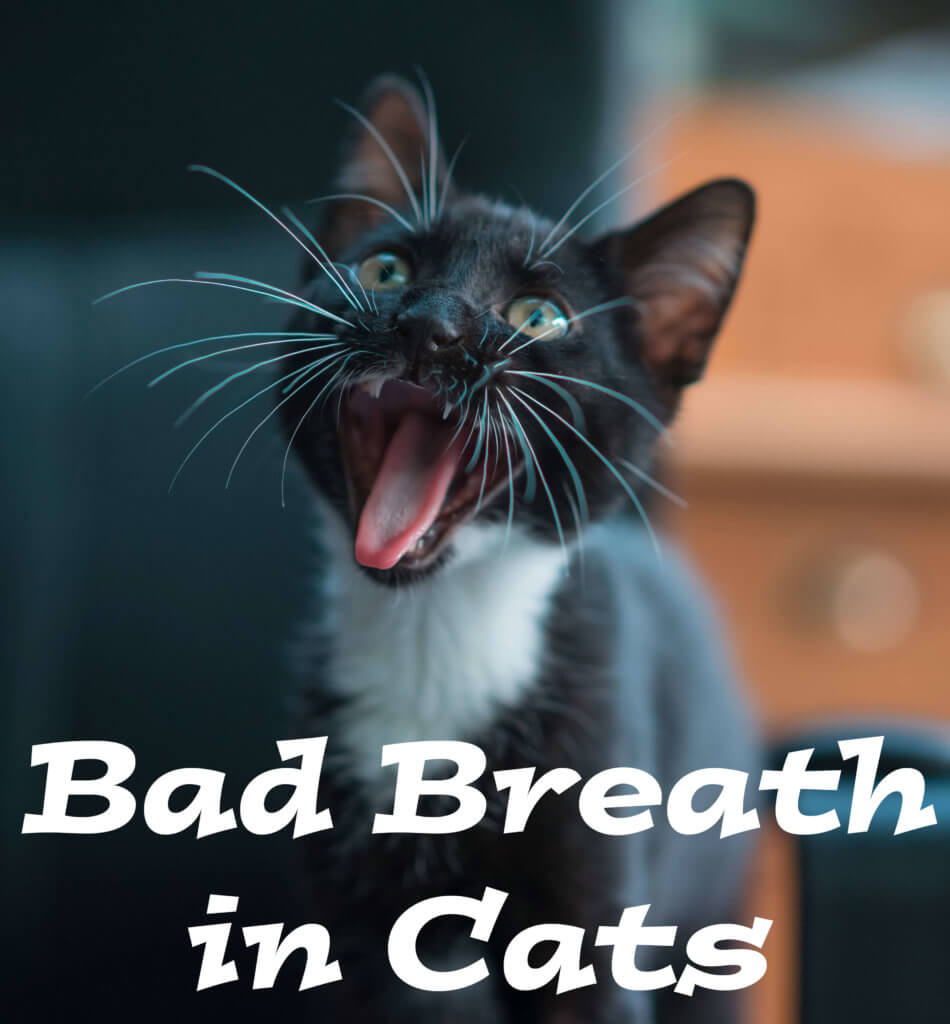
Bad breath in cats is like human bad breath and is usually caused by the build up of bacteria in the mouth. With cats, the bacteria that sets off the bad breath is linked with tartar build up on the teeth.
Tartar is a white substance made up of bacteria, food particles and minerals and tends to coat the teeth and then hardened. While you might not expect your cat to have minty fresh breath, a foul mouth odor can be a red flag.
Causes
Tartar – Feline bad breath is typically caused by buildup of tartar on the teeth. Just like in dogs and humans, tartar on the teeth promotes the escalation of oral bacteria that produces foul smelling sulfur compounds. Even though tartar hasn’t mounted up enough yet to cause cat bad breath, make sure that a kitten’s gums and teeth are tartar free or that there’s no other inflammation there. If there are signs of tartar, your cat may need to see a veterinarian.
Caught Food – Something caught in your cat’s teeth or under her gums can cause foul odors in the mouth. Food or a strand of hair or string, for example, can get lodged in the little nooks and crannies between teeth and can decompose, soon infecting the surrounding tissue.
Respiratory Infection – Cats can have bacterial or viral infections of the nasal passages, throat and lungs, just like humans. Unfortunately, these infections can promote the development of more bacteria and can lead to feline bad breath. Likewise, the bad breath problem of the cat will immediately subside once the respiratory infection that went with the bad breath is finally given relief.
Feline Acne – Another cause of feline bad breath, specific to cats, is feline acne. If you see black spots or bumps on your cat’s chin, then he has feline acne. These black spots are accumulated emissions from the cat’s glands; the inflamed area can be proliferated by bacteria thus producing bad breath. Feline acne can be treated with an antiseptic cleanser or topical shampoo.
Medical Illness – In some cases, bad breath in cat may indicate sickness. There may be problem with the cat’s organs like the kidney which gives out an unusual smell on breath. Diabetes can also cause breath to have a fruity odor. Assessing with a veterinarian can help in ensuring that the cat’s bad breath is not caused by any serious illness.
Treatment
To treat cat bad breath, simply take off the tartar that has accumulated between the cat’s teeth. Also, there are pet foods which are formulated to produce a mechanical friction that could scrape off tartar, sometimes enzymes are just added to the foods and it help in dissolving the tartar.
If for instance that the tartar on cat’s teeth are severe, you can consider giving the cat a professional cleaning schedule. Once, you’re cat is tartar free, bad breath should disappear.
Prevention
Once you have determined the cause of your cat’s bad breath with your veterinarian, you might want to takes steps to prevent the problem from recurring. Regardless of the underlying problem, follow your veterinarian’s instructions carefully. Here are some ways to keep your cat’s mouth fresh:
Regular brushing- Because the most common cause of bad breath in cats is dental issues, regularly brushing your cat’s teeth is the most efficient way to prevent halitosis. It is recommended to brush them daily but try for three times a week.
Limit wet food- Avoid an exclusive diet of wet food. Cut up chunks of human grade beef, budget cuts such as chuck steak are perfect. This gives your cat a chance to really chew the food, keeping his jaw and bones strong.
Raw chicken necks or wings- These can be a great way to reduce plaque and tartar formation. One or two chicken necks or wings twice a week is recommended. Never feed your cat cooked bones of any kind as they are more brittle which can cause them to splinter.
#1 Premium Pet Dental Spray
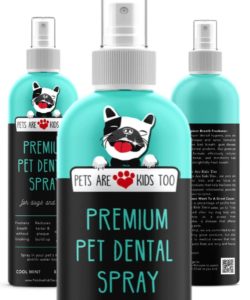
This Premium Dental Spray eliminates TARTAR, PLAQUE and GUM DISEASE. While most products only freshen breath, this alcohol-free pet breath spray and plaque & tartar remover reduces the risk of oral disease by providing daily natural plaque and tarter control for your cats.This spray works on contact and your cat will actually enjoy the taste.
#2 Greenies
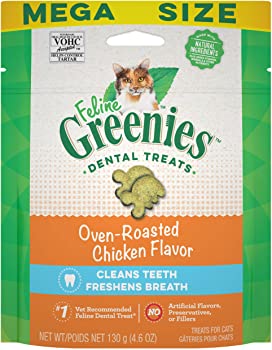
Cat dental care is made easier with these treats. This treat effectively cleans teeth, freshens breath, and fights tartar in your cats mouth. Not only will it clean your cat’s teeth it will do so while providing complete nutrition, vitamins and minerals, with a taste your cat will enjoy. These treats also come in several flavors and sizes.
Final Thoughts
A complete examination should be done if your cat’s bad breath continues after treatments and prevention steps are taken. Many conditions related to bad breath can be serious, and early diagnosis and treatment may be able to slow down or reverse the underlying cause.

